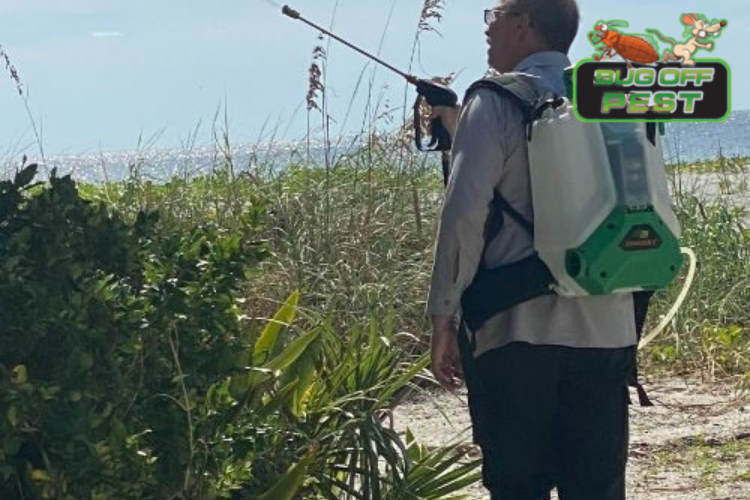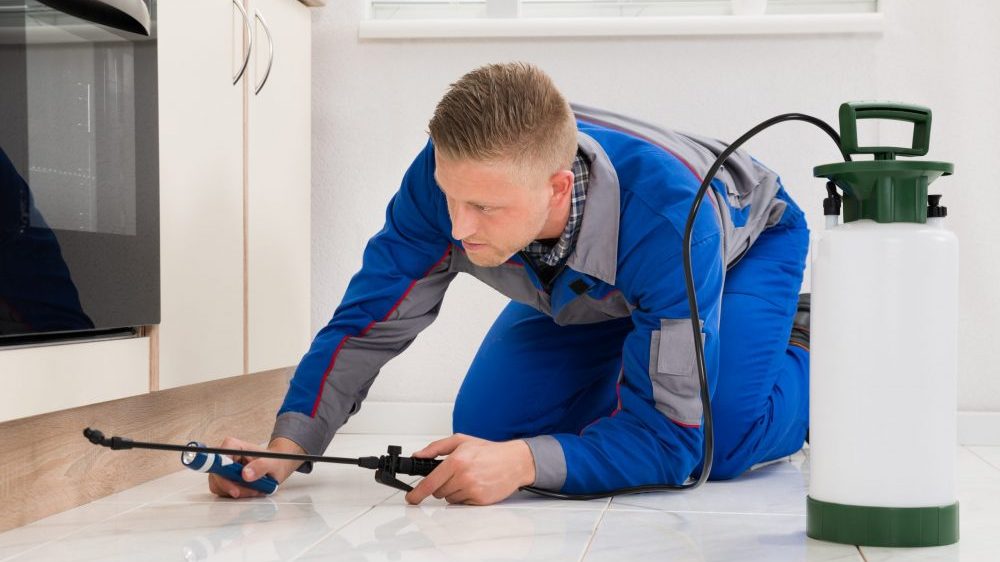Comprehensive Residential Pest Control Service in Port Charlotte
Comprehensive Overview to Recognizing Bug Control Approaches and Their Therapy
Understanding insect control approaches is important for efficient management of unwanted organisms that position dangers to health and wellness, farming, and residential or commercial property. This detailed guide will certainly discover various strategies, including chemical options, organic strategies, and mechanical methods, all under the umbrella of Integrated Pest Management (IPM) As we analyze these techniques, it ends up being progressively clear that the choice of method can considerably affect both human interests and ecological equilibrium. What factors should be considered when choosing the suitable insect control method for a specific situation? The answer may result in even more sustainable methods than one may at first assume.
Review of Parasite Control Methods
Bug control methods encompass a selection of approaches made to manage and remove unwanted microorganisms that can damage human health and wellness, agriculture, and home. Effective bug monitoring is vital for keeping the honesty of ecological communities and guaranteeing the safety and security of food supplies. These methods can be broadly categorized into three main approaches: social, mechanical, and biological controls.

Cultural control entails customizing farming practices or environmental problems to decrease pest facility and recreation. Mechanical control depends on physical barriers or gadgets to protect against parasite gain access to or straight remove them.
Organic control uses all-natural predators, parasites, or microorganisms to manage pest populations. This technique emphasizes environmental equilibrium and can include introducing helpful pests, such as ladybugs or predatory nematodes, to handle insect existence.
Integrated pest administration (IPM) incorporates these strategies, making use of an all natural method that highlights prevention, tracking, and responsible monitoring. By using a blend of these approaches, bug control can be much more sustainable and reliable, minimizing reliance on chemical treatments while guarding human health and the setting.

Chemical Pest Control Solutions
A variety of chemical parasite control remedies are offered, supplying effective options for taking care of insect populations when other techniques might fall brief. These services largely consist of pesticides, herbicides, fungicides, and rodenticides, each made to target certain pests while decreasing injury to non-target microorganisms.
Insecticides are especially reliable versus a variety of insects, including ants, cockroaches, and termites, and can be identified as call or systemic agents. Contact insecticides eliminate bugs on get in touch with, while systemic pesticides are absorbed by plants, making them poisonous to bugs that feed on them. Herbicides are utilized to manage undesirable plants, whereas fungicides are essential for handling fungal conditions that can damage plants and decorative plants.
Rodenticides, created for rodent control, are offered in numerous solutions, including baits and tracking powders. It is important to follow label guidelines diligently to make certain security and efficiency. Additionally, incorporated parasite monitoring (IPM) concepts ought to be used, additional hints combining chemical solutions with social, mechanical, and organic techniques for sustainable insect control. This alternative strategy not just boosts pest monitoring performance yet also decreases prospective ecological effects linked with chemical usage.
Organic Parasite Control Methods
Organic parasite control methods supply an eco-friendly choice to chemical approaches by using all-natural killers, parasites, or pathogens to handle parasite populaces. This method leverages the eco-friendly relationships between microorganisms, advertising a well balanced environment while reducing chemical residue in the environment.
Among one of the most usual biological control approaches entails the introduction of all-natural opponents. As an example, ladybugs are employed to manage aphid populaces, while parasitical wasps can target caterpillars and various other pests. These all-natural killers efficiently reduce pest numbers without harming advantageous bugs.
In addition, microbial representatives such as germs, fungis, and infections are utilized to infect and eliminate details parasites. Bacillus thuringiensis (Bt), a naturally occurring germs, is extensively made use of to manage caterpillars and other larvae, showcasing the effectiveness of microbial pest control.

Physical and Mechanical Techniques
Frequently employed in incorporated parasite management methods, physical and mechanical click this link approaches work as effective devices for managing pest populaces without the use of chemicals. These methods count on physical obstacles, traps, and various other mechanical gadgets to stop or remove parasites, making them eco friendly alternatives.
Physical techniques include making use of obstacles such as insect netting, screens, or row covers that literally obstruct bugs from accessing plants. This is especially helpful in agricultural settings where plant protection is necessary. In addition, habitat control, such as removing particles and standing water, can minimize pest reproducing sites, consequently reducing invasions.
Mechanical methods encompass traps, which can be created to capture specific parasites. Sticky traps and pheromone catches are typical examples that tempt and keep bugs, facilitating surveillance and control. Vacuuming is another mechanical technique, efficient for removing bugs from indoor settings, specifically in situations of problems.
Preventative Pest Monitoring Techniques
Reliable preventative parasite monitoring strategies are important for keeping healthy environments and lessening pest-related problems prior to they arise (Pest Control in Port Charlotte, FL). These methods concentrate on aggressive measures that minimize the likelihood of pest problems by dealing with the source

One more vital method includes correct landscaping methods (Pest Control in Port Charlotte, FL). Maintaining plants trimmed and away from buildings can lower harborage areas for bugs. Applying incorporated parasite management (IPM) strategies that include keeping an eye on parasite populaces and employing biological controls can cultivate a balanced ecosystem that normally reduces pest numbers.
Education and training for team and citizens on identifying very early indicators of pest activity are likewise crucial elements of an effective preventative program. By fostering an atmosphere of recognition and alertness, organizations and homeowners can significantly boost their parasite administration efforts and safeguard their spaces versus future infestations.
Conclusion
In verdict, reliable parasite control needs a diverse strategy that incorporates chemical, organic, and mechanical methods. Utilizing an Integrated Parasite Management (IPM) structure permits for the sustainable monitoring of bugs while minimizing environmental effect. Preventative approaches additionally improve the efficacy of these methods, guaranteeing lasting protection of wellness, farming, and property. Ultimately, a detailed understanding of these varied parasite control techniques is essential for attaining successful outcomes in parasite monitoring initiatives.